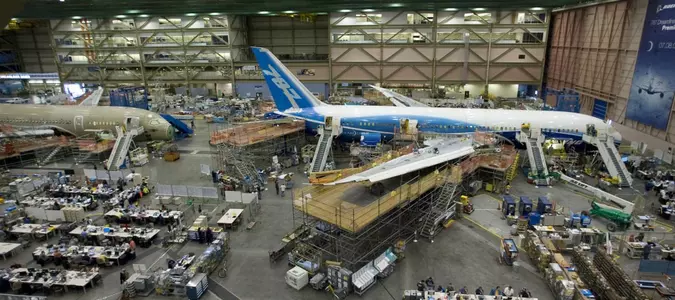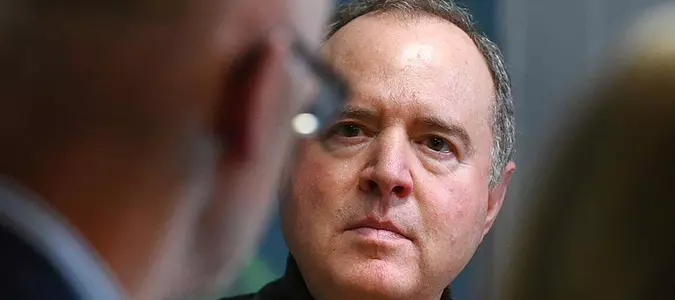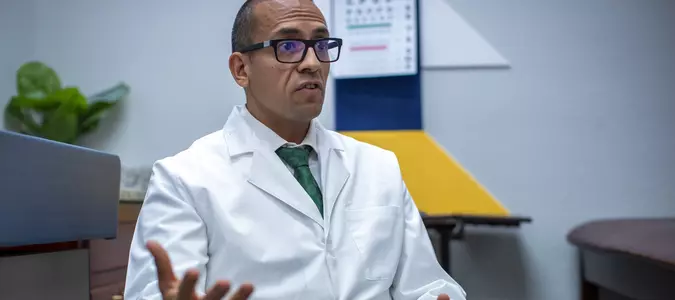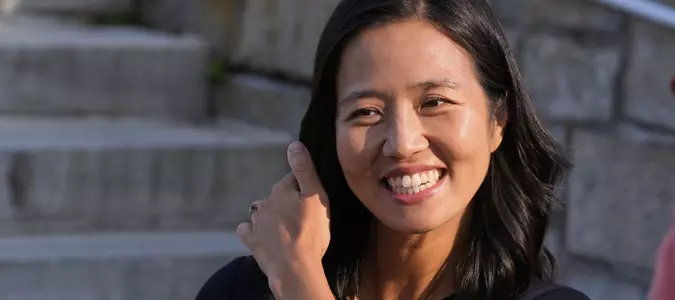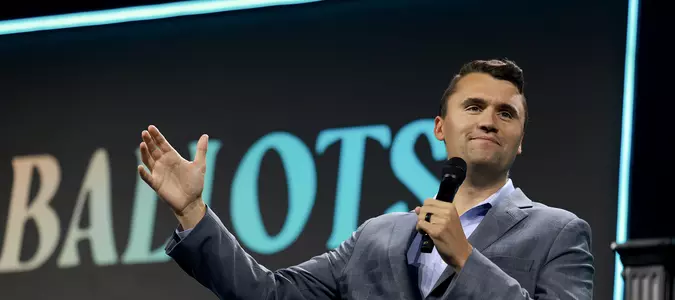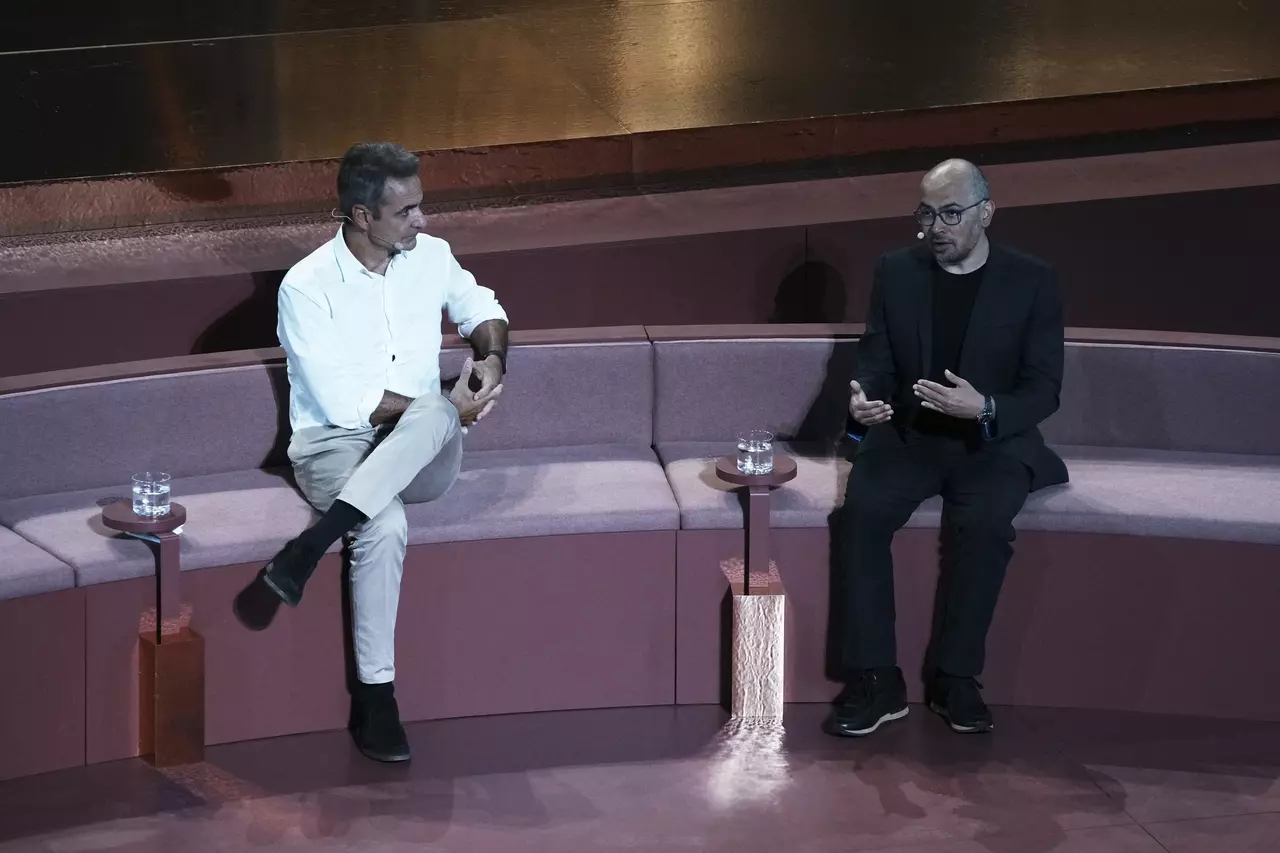

Google's top AI scientist says ‘learning how to learn’ will be next generation's most needed skill
Google's DeepMind CEO Demis Hassabis says the most valuable human skill for the future will be “learning how to learn” as artificial intelligence transforms education, careers and daily life

Demis Hassabis, CEO of Google's artificial intelligence research company DeepMind, right, and Greece's Prime Minister Kyriakos Mitsotakis discuss the future of AI, ethics and democracy during an event at the Odeon of Herodes Atticus, in Athens, Greece, Friday, Sept. 12, 2025. (AP Photo/Thanassis Stavrakis)
ATHENS, Greece (AP) — A top Google scientist and 2024 Nobel laureate said Friday that the most important skill for the next generation will be “learning how to learn” to keep pace with change as Artificial Intelligence transforms education and the workplace.
Speaking at an ancient Roman theater at the foot of the Acropolis in Athens, Demis Hassabis, CEO of Google’s DeepMind, said rapid technological change demands a new approach to learning and skill development.
“It’s very hard to predict the future, like 10 years from now, in normal cases. It’s even harder today, given how fast AI is changing, even week by week,” Hassabis told the audience. “The only thing you can say for certain is that huge change is coming.”
The neuroscientist and former chess prodigy said artificial general intelligence — a futuristic vision of machines that are as broadly smart as humans or at least can do many things as well as people can — could arrive within a decade. This, he said, will bring dramatic advances and a possible future of “radical abundance” despite acknowledged risks.
Hassabis emphasized the need for “meta-skills,” such as understanding how to learn and optimizing one’s approach to new subjects, alongside traditional disciplines like math, science and humanities.
“One thing we’ll know for sure is you’re going to have to continually learn ... throughout your career,” he said.
The DeepMind co-founder, who established the London-based research lab in 2010 before Google acquired it four years later, shared the 2024 Nobel Prize in chemistry for developing AI systems that accurately predict protein folding — a breakthrough for medicine and drug discovery.
...
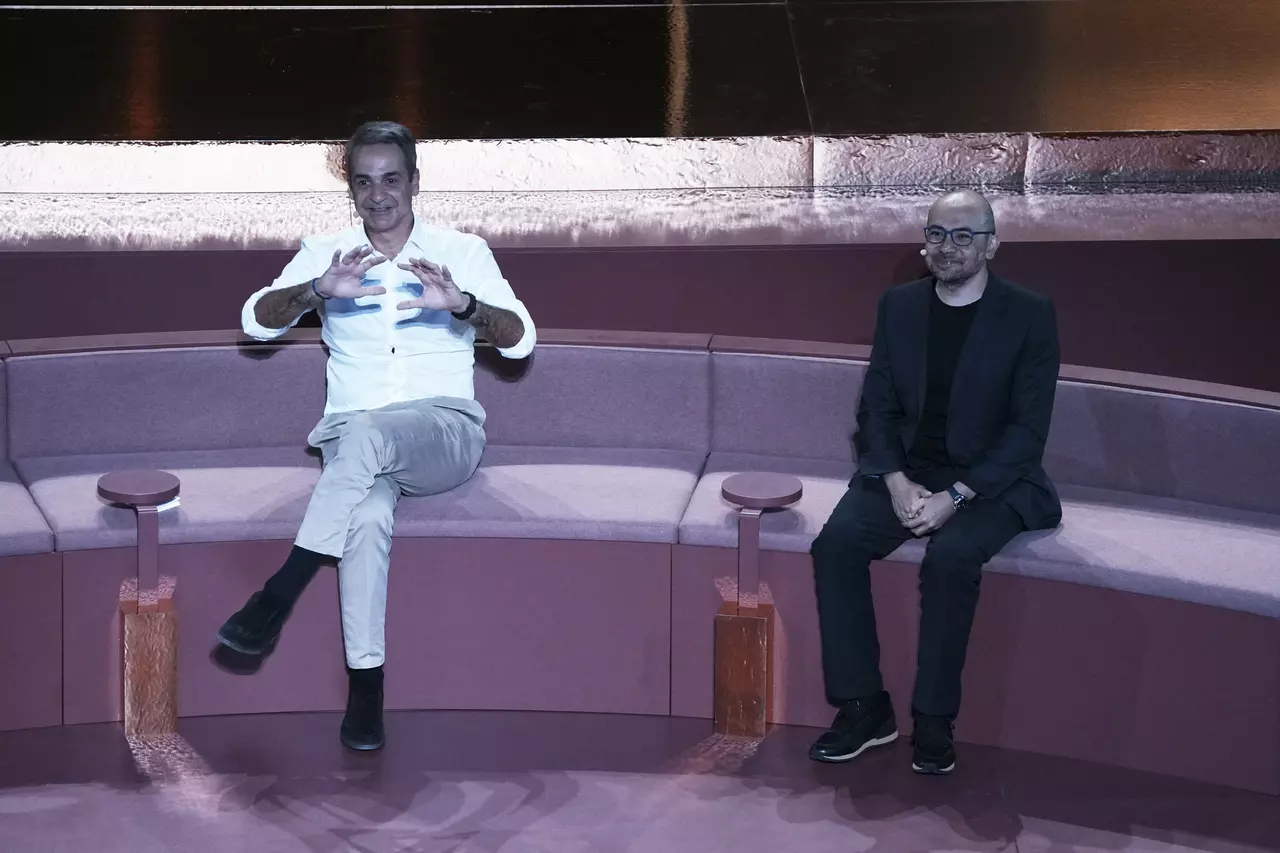
Greece's Prime Minister Kyriakos Mitsotakis, left, and Demis Hassabis, CEO of Google's artificial intelligence research company DeepMind discuss the future of AI, ethics and democracy during an event at the Odeon of Herodes Atticus, in Athens, Greece, Friday, Sept. 12, 2025. (AP Photo/Thanassis Stavrakis)
Greek Prime Minister Kyriakos Mitsotakis joined Hassabis at the Athens event after discussing ways to expand AI use in government services. Mitsotakis warned that the continued growth of huge tech companies could create great global financial inequality.
“Unless people actually see benefits, personal benefits, to this (AI) revolution, they will tend to become very skeptical," he said. "And if they see ... obscene wealth being created within very few companies, this is a recipe for significant social unrest.”
Mitsotakis thanked Hassabis, whose father is Greek Cypriot, for rescheduling the presentation to avoid conflicting with the European basketball championship semifinal between Greece and Turkey. Greece later lost the game 94-68.
____
Kelvin Chan in London contributed to this story.

Greece's Prime Minister Kyriakos Mitsotakis, center, and Demis Hassabis, CEO of Google's artificial intelligence research company DeepMind, right, discuss the future of AI, ethics and democracy as the moderator Linda Rottenberg, Co-founder & CEO of Endeavor looks on during an event at the Odeon of Herodes Atticus in Athens, Greece, Friday, Sept. 12, 2025. (AP Photo/Thanassis Stavrakis)
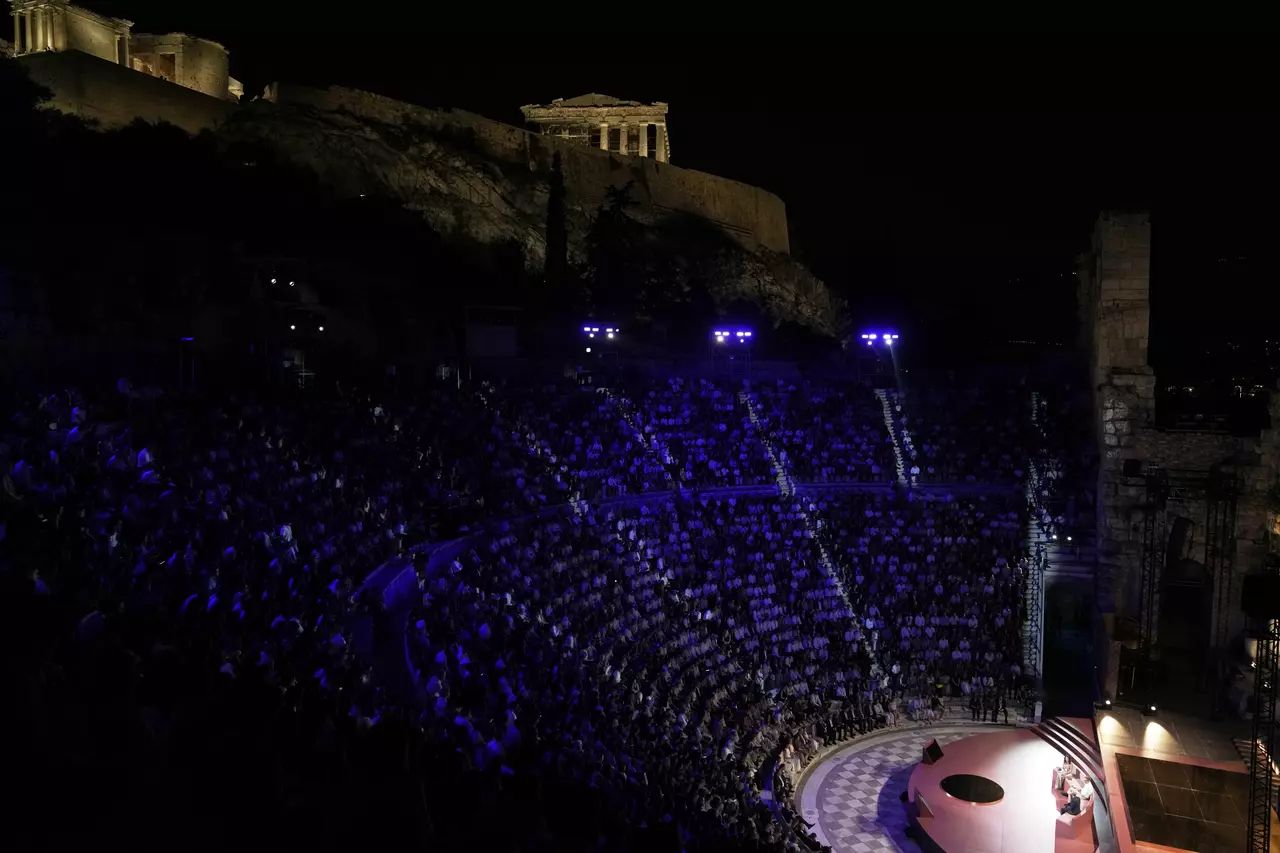
Demis Hassabis, CEO of Google's artificial intelligence research company DeepMind, bottom right, and Greece's Prime Minister Kyriakos Mitsotakis, bottom center, discuss the future of AI, ethics and democracy during an event at the Odeon of Herodes Atticus, under Acropolis ancient hill, in Athens, Greece, Friday, Sept. 12, 2025. (AP Photo/Thanassis Stavrakis)




